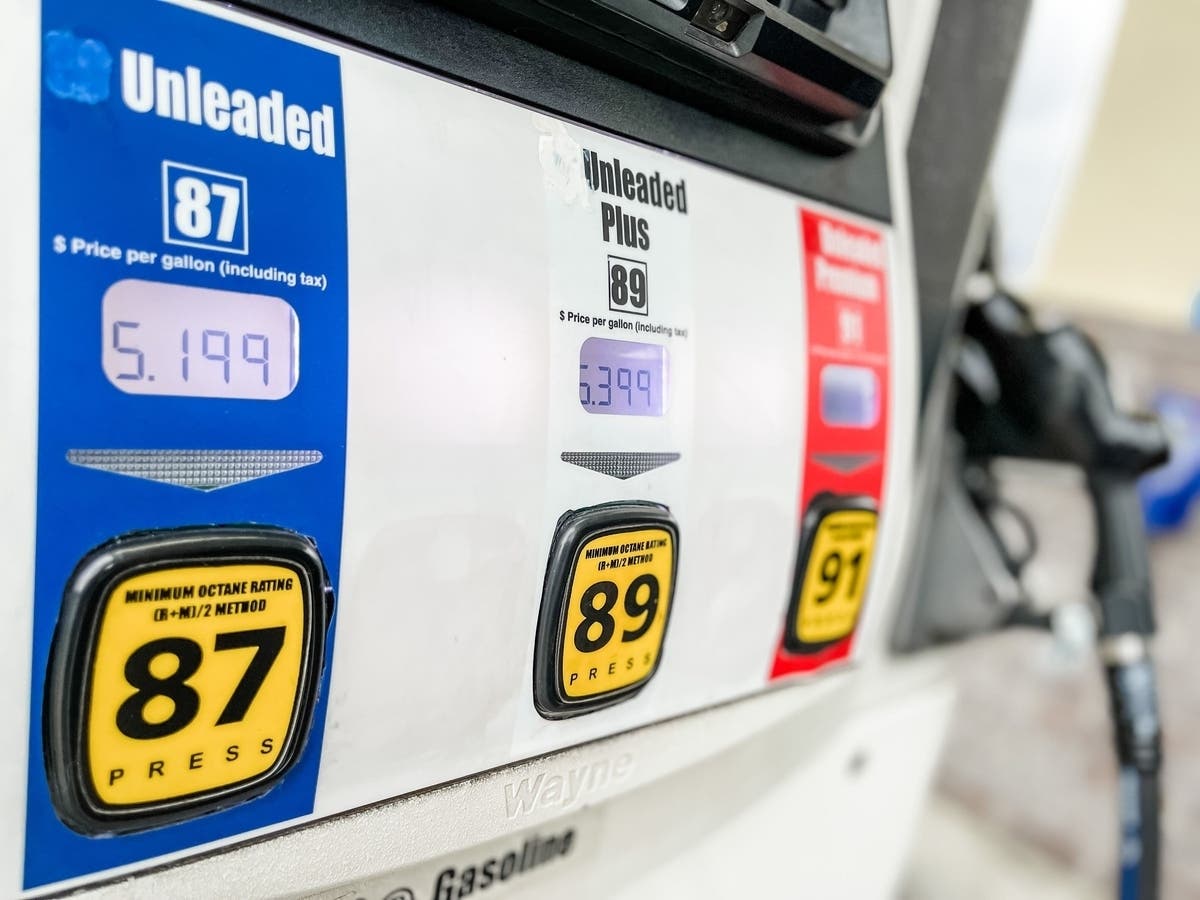Business & Tech
Nearly 8% Inflation Is Highest In 40 Years: What It Means In GA
Prices for gas, food, clothing, heating and rent have risen amid of a 7.9-percent jump in inflation, the U.S. Labor Department shows.

GEORGIA — Surging prices for food, gas and housing that are already putting the squeeze on Georgia residents could go even higher, according to a report released last week from the Labor Department that showed inflation jumped 7.9 percent over the 12-month period ending in February, the sharpest spike since 1982.
That means Georgia residents paid about 9.6 percent more for meat, poultry and eggs, 0.9 percent more for milk, and 5.2 percent more for fruits and vegetables. It cost 11.8 percent more to put clothes on their backs, and 6.3 percent more for the supplies to keep their houses clean. Rent prices are up 8.5 percent.
But that’s not the worst of it.
Find out what's happening in Atlantawith free, real-time updates from Patch.
Overall, energy costs increased more than 25 percent over the 12-month period. The biggest increases were in motor fuels (38 percent). Natural gas costs increased almost 24 percent.
The government report doesn’t reflect increases in already-high gas prices associated with President Joe Biden’s announcement Tuesday of a ban on Russian crude and other energy imports as punishment for its unprovoked invasion of Ukraine.
Find out what's happening in Atlantawith free, real-time updates from Patch.
The average gas price stood at $4.32 a gallon Thursday, a jump of 6 cents over the day prior, according to AAA. The per-gallon cost of gas has increased 62 cents since Russia invaded Ukraine on Feb. 24, sparking fears worldwide of increasing energy costs.
Georgia gas prices trail the national average of $4.325 per gallon just slightly at $4.287, placing the Peach State at 20th highest, according to GasBuddy.com and AAA. Prices have surpassed the state’s Sept. 15, 2008, record high of $4.16 per gallon.
The report is a cautionary tale about future increases, showing a steady increase in inflation since late fall. Inflation rose 0.8 percent from January to February, up from 0.6 percent from December to January and 0.6 percent from November to December.
The cost of food increased on pace with inflation, costing Americans 7.9 percent more last month than in February 2021. Importantly, costs increased 1 percent from January to February 2022; 0.9 percent from December to January; and 0.5 percent from November to December.
The almost 8 percent inflation rate was driven not only by increases in almost everything Americans spend money on but also by 4.5 percent pay raises, which are higher than at any point in 20 years, and persistent shortages of goods and services, The Associated Press reported.
But even with those solid pay raises, many Americans aren’t able to keep pace with the increasing costs of necessities, which could put Democrats — who control both houses of Congress and the White House — in a vulnerable position in midterm elections.
Inflation could reach 9 percent this month or next, Eric Winograd, a senior economist at asset manager AllianceBernstein, told the AP.
Some of that will likely be driven by Russia’s war in Ukraine. Since Feb. 24, prices have soared for commodities for which the two countries lead the world in exporting, including wheat, corn, cooking oils and metals such as aluminum and nickel.
The cost of rent has also surged at the fastest rate in decades, largely due to steady job growth and surging real estate prices that have combined to put apartment vacancy rates at their lowest level since 1984, according to The AP analysis.
To beat back inflation, the Federal Reserve plans to raise interest rates several times in 2022, beginning with a quarter-point hike next week. It’s a delicate challenge for the Fed, which risks undercutting the economy and possibly triggering a recession if it tightens credit too aggressively, The AP reported.
Energy cost increases are a particularly difficult challenge for the Fed
Soaring energy costs pose a particularly difficult challenge for the Fed. Higher gas prices tend to both accelerate inflation and weaken economic growth. That’s because the more Americans spend at the gas pump, the less they’ll spend on other goods and services, creating a dynamic economists call “stagflation” — a combination of high inflation and a sputtering economy.
However, The AP reported that most economists think the U.S. economy is growing strongly enough that another recession is unlikely, even with higher inflation.
The Associated Press contributed reporting.
Get more local news delivered straight to your inbox. Sign up for free Patch newsletters and alerts.